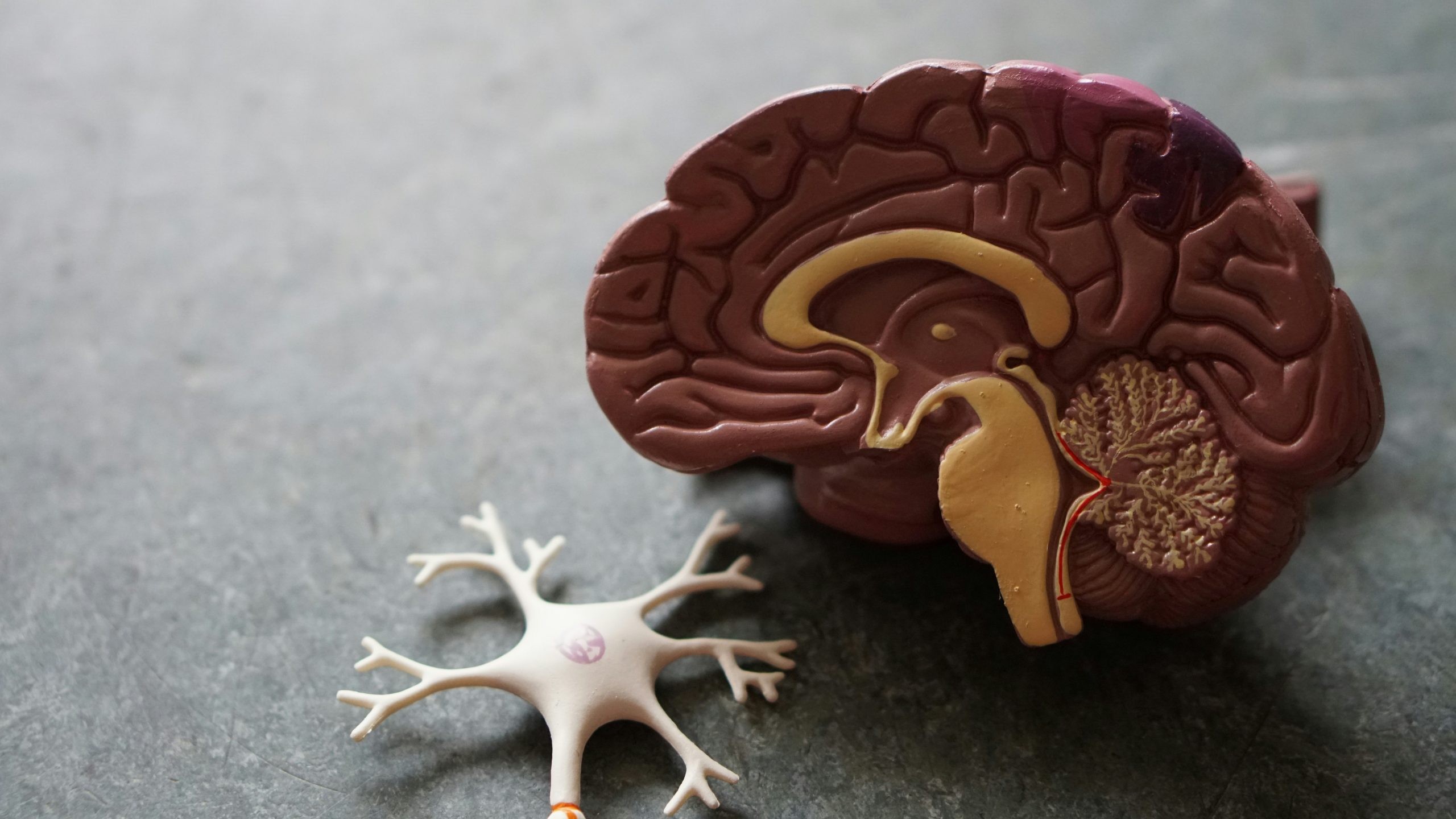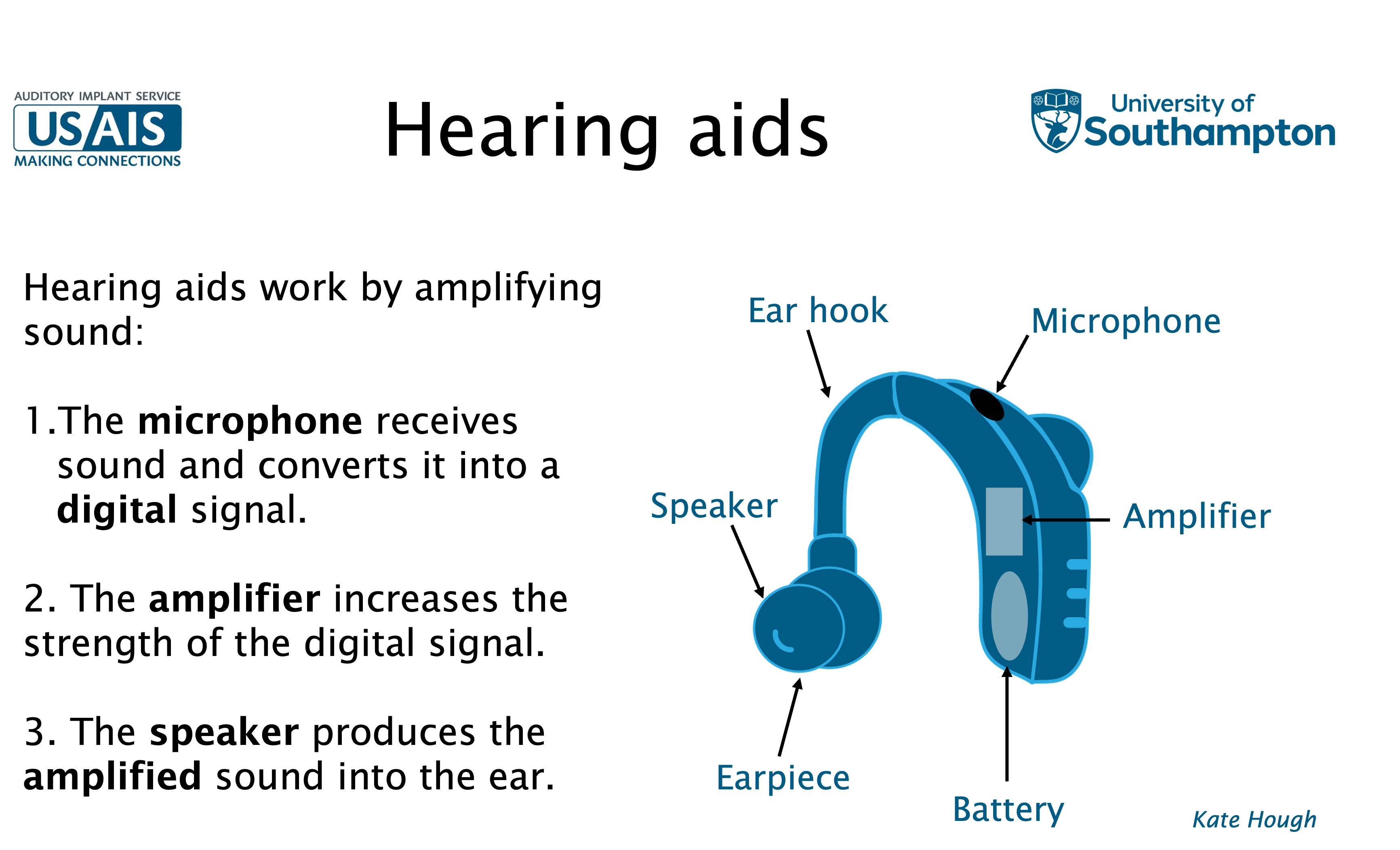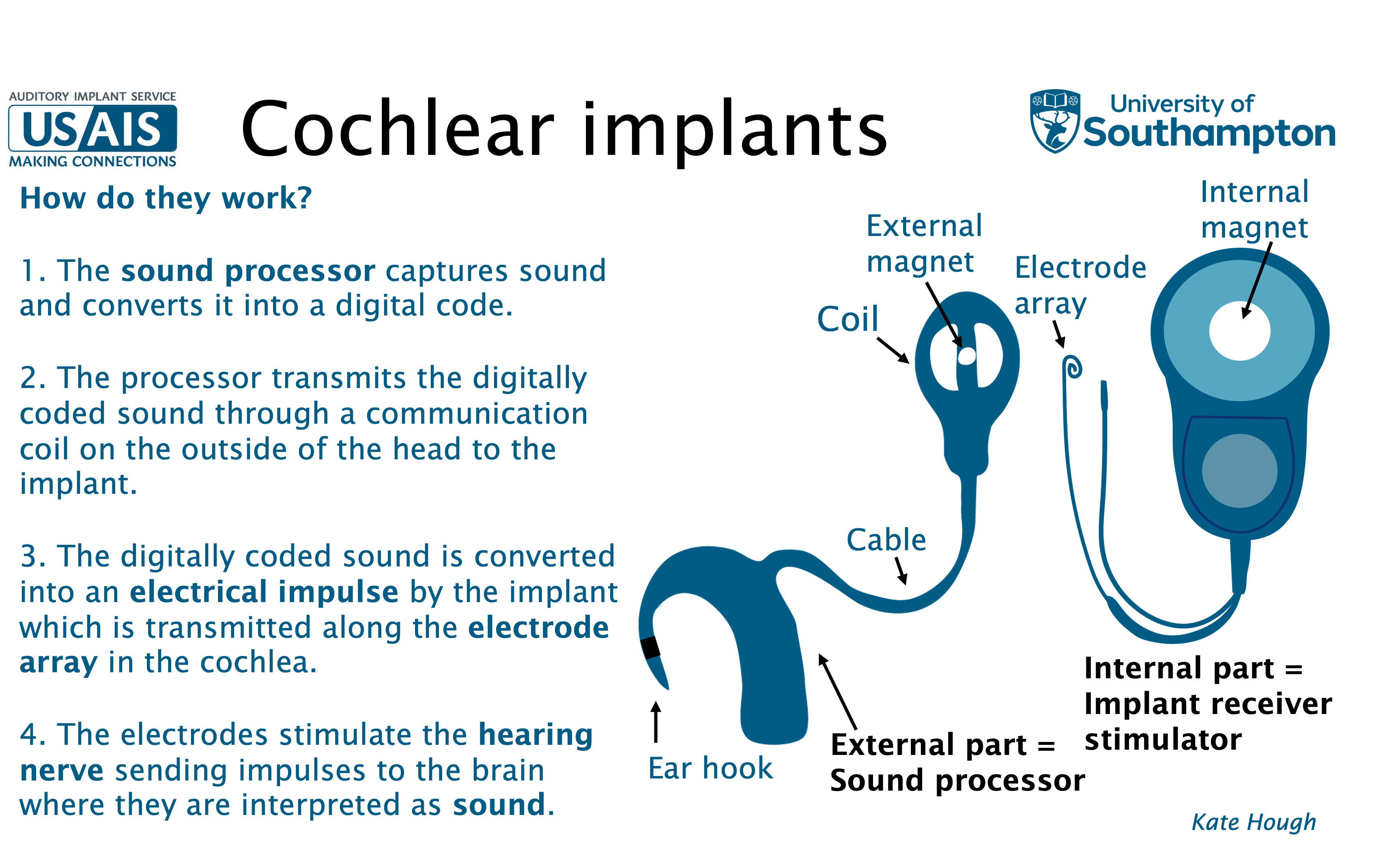
Hearing and brain health
We all have a unique hearing trajectory as we go through life. How we live can influence this trajectory. If there is a decline in your hearing capacity, you will have a hearing loss. Hearing loss can range from mild to profound. Hearing impairment can be addressed by interventions such as hearing aids or cochlear implants.
Hearing aids

Hearing aids act as a microphone and amplify sounds. Hearing aids can be beneficial for people with mild to moderate hearing loss.
Cochlear implants

Cochlear implants are an intervention to address severe to profound deafness and hearing loss for both children and adults.
Cochlear implants have two main components:
- a sound processor worn externally behind the ear
- an implanted receiver-stimulator which is surgically recessed into the bone of the skull and secured under the skin
The batteries powering the device are housed in the external processor unit. The electrode array projecting from the receiver-stimulator unit is inserted into the cochlea through the round window, or just beside the round window, via a cochleostomy.
How does a cochlear implant work?
The process begins when the sound processor detects and captures environmental sound and converts it into a digital code. The digitally coded sound is transmitted through a communication coil on the outside of the head to the implant. It is then converted into an electrical impulse by the implant. This impulse is transmitted along the electrode array in the cochlea. The hearing nerve is stimulated by the electrode, sending impulses to the brain where they are interpreted as sound.
Cochlear implants are beneficial for people who have very little to no hearing function, giving them the ability to communicate, listen to music and succeed in a work environment.
The relationship between hearing and brain health
Hearing loss is one of the highest risk factors for dementia. In older adults, hearing loss is also associated with loneliness and increased social isolation. Content and built space is often not suitable for people with hearing loss. They will face barriers when accessing:
- information
- community groups
- services
Increasing awareness of hearing loss as a risk factor for dementia, and the benefits of treatments can help people stay connected and protect their health and wellbeing.
Addressing your hearing health is not only beneficial for mental and emotional wellbeing, it is also beneficial for your cognitive health.
If you are middle-aged or older, the NHS recommends that you get regular hearing tests. If you are prescribed a hearing aid, make sure to wear it.
To get a hearing test on the NHS, book an appointment with your GP.
To get a private hearing test, you can book an appointment at various places including Boots and Specsavers. You may need to pay for a private test.
